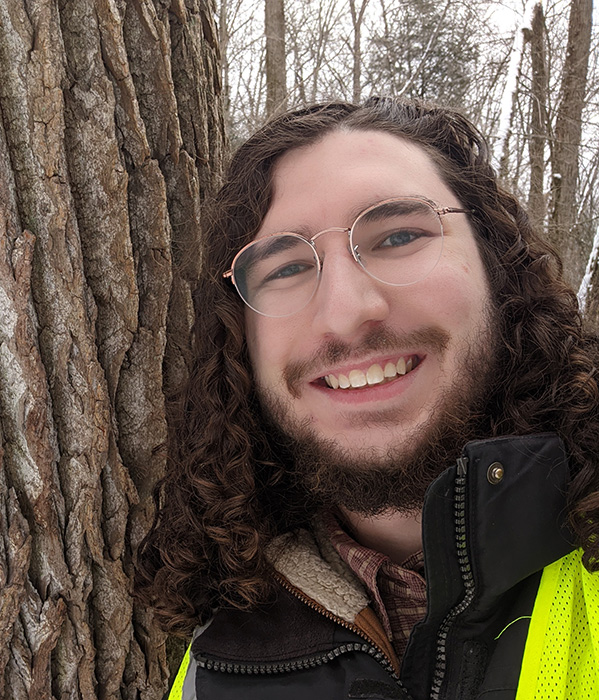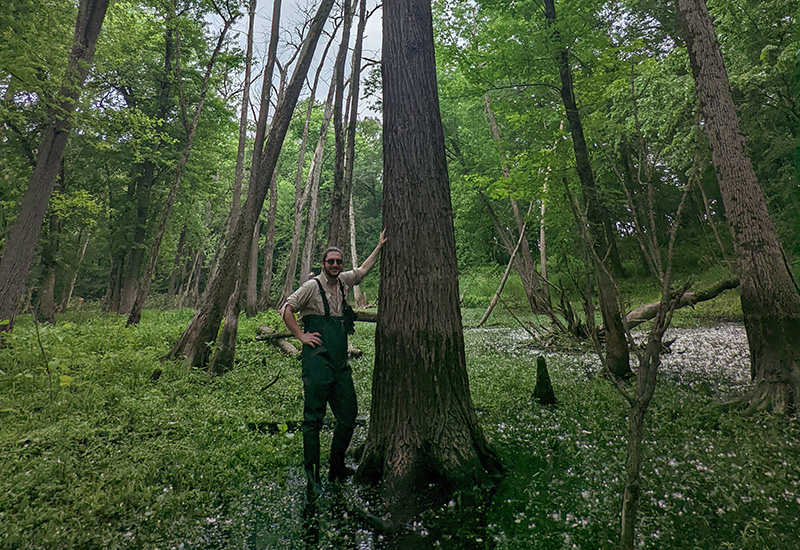Tyler Wintermute
Environmental Science and Applied Biology, minor in Chemistry

Class Year: 2019
Hometown: Broadlands, Virginia
- PhD Candidate, Department of Botany – University of Wisconsin-Madison
How did your UE education impact you?
UE set me on the path I'm on today. Because of the interdisciplinary nature of Environmental Science, I was able to learn ample biology and chemistry skills to succeed in the field of chemical ecology. The Survey of Biological Diversity course introduced me to many different types of plants. Tropical Ecology of Costa Rica awakened an appreciation and awe of the diversity of plant life on the planet, especially due to the vast number of species that can occur in a single area in the tropics. Evolutionary Ecology clearly demonstrated the role evolution plays in the selection of various species traits. Ecology showed the intraspecific interaction of these traits in action.
Following the course in Costa Rica, I began working in Dr. Arlen Kaufman's lab as an undergraduate researcher, studying Leaf Spray and ambient ionization technique used to explore secondary metabolites in plants. We used Populus deltoides as our study species, and as I learned more about Populus (aspens, poplars, and cottonwoods) as a model system for tree biology, I became more interested in their chemical interactions with other species, such as butterflies and moths. The courses I took in chemistry, especially Quantitative Analysis and Instrumental Analysis, equipped me with the analytical skills to measure these chemical traits. The chemical instrumentation in the Chemistry department, especially those in Dr. Kaufman's lab, provided me with invaluable hands-on experience that is rare in an undergraduate environment. I combined my ecology and chemistry knowledge to do an independent research project using a UExplore grant tied to my final project in Dr. Cris Hochwender's Ecology course.

Today, I am still researching the chemical ecology of Populus species, but instead of Populus deltoides, I am studying Populus heterophylla (swamp cottonwood). My interest in the species piqued from the tree Dr. Hochwender was growing in the native plant garden, which I had never seen nor heard of before. This curiosity has turned into multiple dissertation chapters exploring the biogeography and defensive chemistry of the endangered tree species.
How did the UE community shape you?
The small class size at UE allowed me to have many, many interactions with professors, something I took for granted. At UW-Madison, I have taught labs for courses with more than 700 students enrolled, and there is very little interaction between professors and students until you reach upper-level courses. The consistency of small class sizes from the beginning to the end of the undergraduate experience at UE facilitates learning at all knowledge levels, and I would frequently ask professors questions during office hours or Biology Tea on Thursday afternoons. The small class sizes allowed me to get to know my peers as well, and we would frequently hang out even outside of class or studying for exams.
What advice do you have for current students?
My advice for current UE students would be to enjoy your time at UE, study abroad, get to know the professors, don't be afraid of asking questions, and get involved on campus. The tight-knit community of UE is something that not many schools have, and it exists because students care about the community. My time with Venturing Crew, Student Government Association, BiSci Club, and ECO were some of my favorite experiences at UE.
